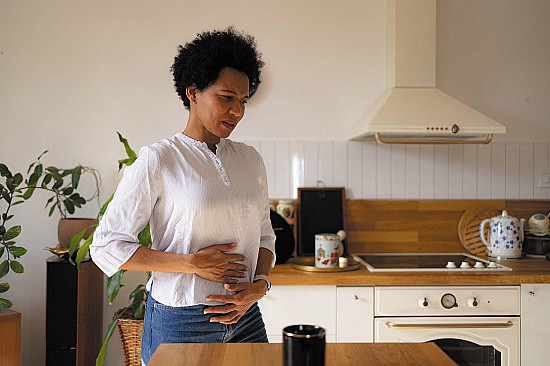Yoga and similar exercises can improve incontinence in older women
Research we're watching
- Reviewed by Toni Golen, MD, Editor in Chief, Harvard Women's Health Watch; Editorial Advisory Board Member, Harvard Health Publishing; Contributor

For older women with urinary incontinence, low-impact yoga and stretching and strengthening exercises are both effective at easing symptoms, according to an analysis published online Aug. 27, 2024, by Annals of Internal Medicine.
The study involved 240 women ages 45 to 90 (average age 62) with urinary incontinence that caused leak-age and related symptoms at least once (and averaging 3.4 times) a day. About half were taught 16 hatha yoga poses intended to strengthen the pelvic floor during two 90-minute classes each week. The other half took classes of the same length and frequency that focused on nonspecific stretching and strengthening exercises that didn't involve the pelvic floor. Both groups were asked to practice their respective regimens for an additional hour each week. They also recorded when they leaked urine and categorized each episode as urgency incontinence (losing control before reaching the bathroom) or stress incontinence (leaking urine in response to abdominal pressure such as coughing or sneezing).
After three months, both approaches proved similarly effective at reducing incontinence by about 60%. Participants in the yoga group experienced an average of 2.3 fewer episodes of incontinence each day, while those in the physical conditioning group had an average of 1.9 fewer daily incontinence episodes.
Image: © We Are/Getty Images
About the Author

Maureen Salamon, Executive Editor, Harvard Women's Health Watch
About the Reviewer

Toni Golen, MD, Editor in Chief, Harvard Women's Health Watch; Editorial Advisory Board Member, Harvard Health Publishing; Contributor
Disclaimer:
As a service to our readers, Harvard Health Publishing provides access to our library of archived content. Please note the date of last review or update on all articles.
No content on this site, regardless of date, should ever be used as a substitute for direct medical advice from your doctor or other qualified clinician.















